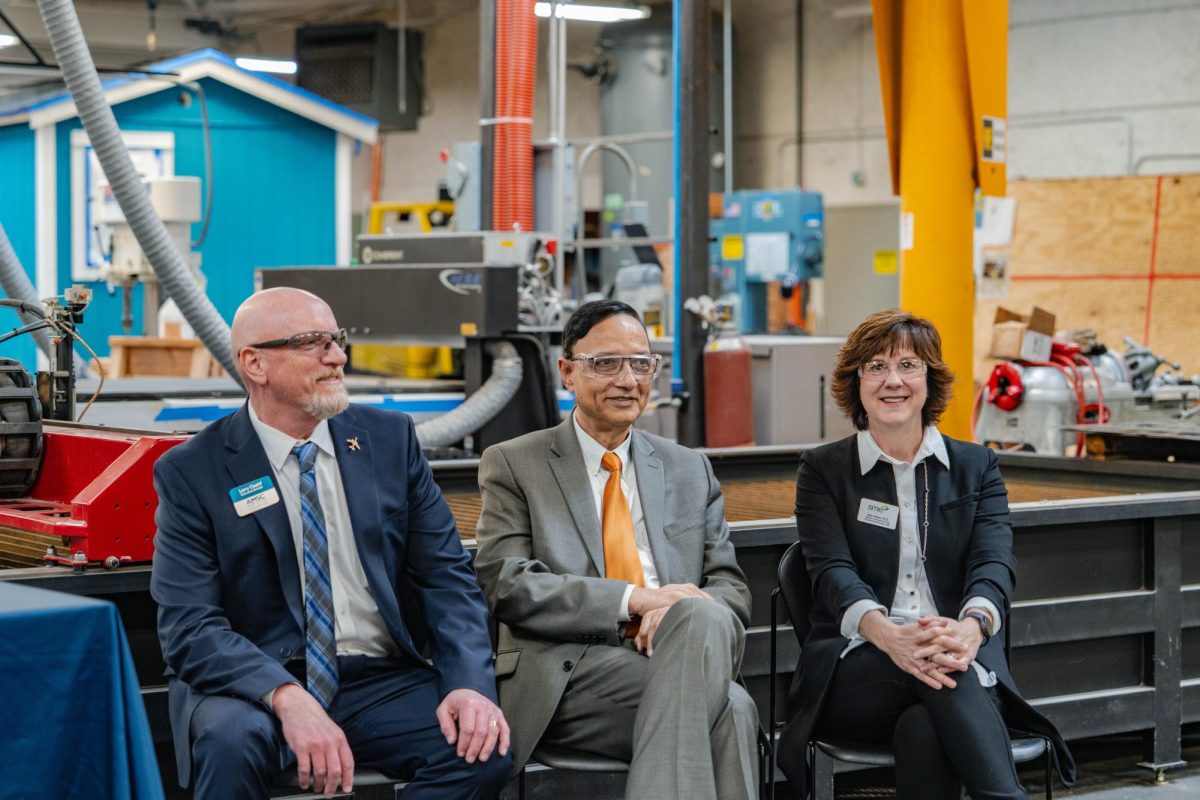

A lot can happen in 16 months.
A skilled sailor could sail around the world – more than four times. According to NASA, astronauts could travel to Mars and almost back. You could build Seattle’s iconic Space Needle with a couple of months to spare.
What has not happened in 16 months is the negotiation of a new contract for faculty at Edmonds College, according to Scott Haddock, faculty union president at the school. And Haddock says he finds that frustrating.
Parties representing members of the American Federation of Teachers, Local 4254, and the college administration have been meeting for more than 16 months, trying to hammer out a new agreement after the old contract expired at the beginning of summer 2022. Faculty at the college have held several informational picketing sessions — one in costume, on Halloween last year – brandishing signs proclaiming the negotiating points they say administrators were refusing to address. Early on, that included things that union members say should be non-issues, such as agreeing that the library would not ban books.
Administrators, on the other hand, say the process is moving along and the parties are working in good faith as they broach issues that have been made more difficult by a challenging fiscal environment.
“We’ve had really good sessions,” said Kim Chapman, vice president for instruction at the college and leader of the administration’s negotiating team. “I would say both sides are taking it very seriously and working very diligently.”
In the meantime, the clock is ticking.
The contract, known formally as the Collective Bargaining Agreement, expired in June 2022. The college and the union signed a memorandum of understanding that extended the contract to the end of last year. That agreement expired on Dec. 31. Under the law, the college is required to honor the status quo and follow the expired contract for one year. If an agreement isn’t reached by the end of this year, there will be no contract in effect.
If that happens, the contract will essentially be a clean slate and the sides will be starting from ground zero, negotiating basic elements of the contract. Other concessions beyond that, which faculty have won over the years, would no longer be in place.
While neither side is at liberty to discuss details of the negotiations, the major points of contention seem to be the college’s pay scale for associate faculty, recognition in the contract of a faculty created Diversity, Equity & Inclusion Committee, release-time pay for important faculty roles such as Faculty Senate president, and the increasing workload being shouldered by department heads.
According to Haddock, the most immediate focus of the union is helping associate faculty who work at the college.
Associate faculty members, who teach on a quarter-to-quarter basis and make up almost 60% of the college’s teaching force, form a critical part of the school’s instructional capacity. “All they want is to be paid a living wage, Haddock said. “Many of them go from college to college, and teach at multiple places.”
Chapman said she often hears that associate faculty at Edmonds are among the lowest paid.
“That doesn’t ring true to me,” she said. Edmonds is part of what is known as the 5-star Consortium, a group of community colleges that includes Edmonds, Everett, Shoreline, Cascadia, and Lake Washington. “I talk to my counterparts there all the time. And I looked at their contracts. Our starting pay is higher than most.”
The problem, according to the union, is how quickly pay raises come to a stop for associate faculty at Edmonds. There are three pay steps for associate faculty at the school, and instructors reach the third step after 18 quarters of instruction. After that, there is no way to continue to move upward.
According to union members who took part in several informational picket sessions over contract negotiations, an associate faculty member working the equivalent of full-time hours at the top step makes under $55,000 a year.
Several of those faculty members spoke with The Triton Review at the picketing sessions. They asked that their names not be used for fear of reprisal.
“I think a lot of students are not aware of the wage discrepancy, and how hard the faculty work for what little they get,” said one faculty member, adding that most instructors put in many extra hours to ensure that the quality of teaching doesn’t suffer.
Another faculty member, who has taught at the college for nearly three decades, said things have changed significantly during that time.
“When I started, we were the best paid faculty in the community college area. And now we are going down.”
For now, the negotiations continue. The next session between the faculty and administration teams is scheduled for Monday. Neither side will estimate when an agreement might be reached.










